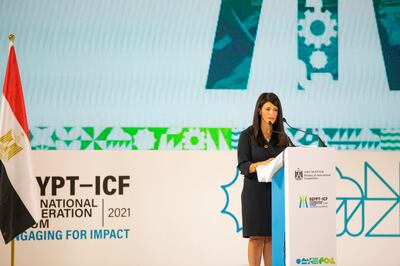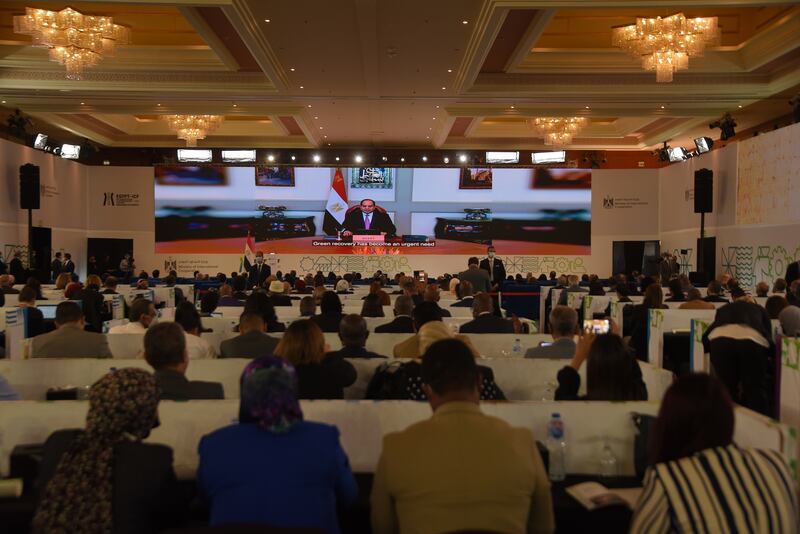Developing countries need more support from the private sector and financial institutions to achieve sustainable development goals, Egypt’s president said.
Abdel Fattah El Sisi made the comments at the inaugural international co-operation forum in Cairo on Wednesday.
“Green recovery has become an urgent need coming at the top of world governments’ priorities at the present time,” he said in recorded remarks.
“Here, we must not overlook the variation in economic and social conditions of emerging and developing countries, which have been hardest hit by the coronavirus pandemic.”
The two-day forum, organised by Egypt’s Ministry of International Co-operation, includes policymakers, private-sector stakeholders and high-level representatives from global development and financial institutions.
The focus of the event is to boost multilateral co-operation to help developing countries, particularly those in Africa, to close the funding gap to achieve the UN’s 17 Sustainable Development Goals by 2030.
Developing countries face an annual SDG financing shortfall of $3.7 trillion, as the world grapples with the effects of the pandemic, according to the Organisation for Economic Co-operation and Development.
Mr El Sisi said the support of the international community and international financial institutions is vital.
“There is no doubt that governments alone cannot make this recovery possible,” he said.
“Therefore the pivotal role of the private sector arises in order to move forward towards a sustainable future through innovative mechanisms to mobilise resources and blended finance.”
Blended finance is the strategic use of development finance for the mobilisation of additional finance towards sustainable development in developing countries, as defined by the OECD.
Egypt has developed its Vision 2030 national agenda in line with the UN’s SDG goals and Africa 2063 Development Agenda, Mr El Sisi said.
He noted successes over the past few years, such as carrying out vast infrastructure projects, providing social protection programmes, boosting investment in human capital and taking measures to transition to a green economy.

Egypt’s Minister of International Co-operation, Rania Al Mashat, said in her opening speech that the forum is a chance to seize the opportunities and tackle the challenges facing developing economies.
“While there is less than a decade left for the 2030 UN SDGs, it is necessary to evaluate what has been achieved so far to recover from the challenges of the pandemic and to build back better,” she said.
Egypt has 377 projects targeting the SDGs at a cost of $26.5 billion, according to the Ministry of International Co-operation.
Many rely on Official Development Assistance financing, government aid designed to promote the economic development and welfare of developing countries.
For instance, Egypt has 34 projects with the goal of affordable and clean energy at a cost of $5.9bn, 23.2 per cent of which was financed through development aid.
“Although Africa receives the largest amount of ODA … this is simply not enough to fill the SDG financing gap,” said Jeffrey Schlagenhauf, deputy secretary general of the OECD, who took part in the conference online.
“More sources of financing for development need to be mobilised, including from the private sector.”
Egypt’s Minister of Finance, Mohamed Maait, said during a panel on private-sector engagement that his country had decided to “move gradually in this direction”.
“For Egypt, we must rely more and more on the private sector to finance our economic growth. We have no other alternative,” he said.
He emphasised that it remained “important for the state to be the main driver” to create the right business environment and regain the private sector’s trust.
The forum was organised in co-ordination with the African Development Bank, the European Bank for Reconstruction and Development, the OECD, the UN and the World Bank Group.







